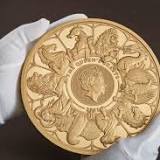Does Alcohol Lead to Heart Disease? It's Complicated


Check out Dr. O’s thoughts on how to eat and drink to avoid heart disease.
We’ve all heard that a glass of red wine may be beneficial for heart health, but is that actually true? And we’ve been told to adopt a “heart-healthy diet,” but what exactly does that mean? And how serious even is heart disease in the first place?
We needed answers, so Katie checked in with the beloved Dr. O — aka J. Nwando Olayiwola, MD, MPH, FAAFP, the Chief Health Equity Officer for Humana Inc. Here, she explains how dangerous (and downright deadly) heart disease can be, what to eat and drink to avoid it, and why the seriousness of this condition can be so tough to grasp.
Katie Couric: So Dr. O, how serious of a problem is heart disease for women?Dr. O: Heart disease is a serious problem for women. Cardiovascular disease in general, including heart attacks, stroke, other forms of vascular disease, kills more women than all forms of cancer combined.
Why is it then that so many women fail to realize how serious heart disease is?So many people don’t realize how serious a killer cardiovascular disease is. And that’s understandable, because people are very worried about things like cancer. They see how people struggle as they go through cancer, and it feels much more scary and makes them much more fearful. In many cases, heart disease is pretty silent: You don’t necessarily see someone going through a process in which their blood pressure is high or their diabetes is getting worse, or their cholesterol is building up.
So I think heart disease ends up being ignored because cancer is more palpable and visible. That’s why it’s such a silent killer and many people don’t recognize it as a risk. Cardiovascular disease is absolutely the number one cause of death — more than car accidents and cancers.
Let’s talk about prevention, and start with diet: What is a heart-healthy diet?A heart-healthy diet includes a number of things, but largely fresh things. So if you can think about how to get more fresh items into your day-to-day meals — like fresh fruits, fresh vegetables, fewer processed foods — you’re in a good spot. But that’s a challenge for a lot of people because we live in a society where we’re rushed, and moving around at lightning speed all the time. It’s easy to grab things that are processed, but those are the foods that really do harm us. Luckily, there are some good tools that people can use to visualize a healthy meal is, and what combination of things they should have on their plates.
The American Heart Association created a program called the Heart-Check Food list. When you’re in grocery stores and even some restaurants, you’ll see a check mark that lets you know the food you’re looking at is heart healthy. The USDA’s MyPlate is also a really good tool that shows you how much of a balance you should have between fresh fruits and non-processed foods. I also want to mention that many people think that heart-healthy food is boring food. But you might be surprised at how many different types of food are actually good for you, if you’re open to trying them.
I know that you’re supposed to have a lot of color on your plate and frozen vegetables are a convenient way to do that. Some people think, If it’s frozen, it’s no good for you, but that’s not necessarily the case, right?Yes, that’s not necessarily the case at all. Sometimes people think that food has to come straight from the farm to their table, and that’s the only way it’s fresh. But if you’re adding fruits and vegetables to your diet, those can be fresh out of the garden or be frozen, canned, or dried. Adding more color to your meals and snacks is certainly possible and not everything has to be kind of right out of the produce section. So that’s a good thing for people to keep in mind, and makes life easier, especially if your busy life doesn’t let you get food straight from the farm.
Let’s talk about alcohol: What role does it play in heart disease?So that’s an interesting story: On the one hand, some studies show that moderate consumption of red wine does have some health benefits and doesn’t really cause or worsen heart disease.
But the real worry with alcohol is excessive alcohol use over time, which can contribute to high blood pressure, diabetes, and heart disease. The American Heart association and other regulatory boards tend to recommend that women drink less than one alcoholic beverage per day, which is about 12 ounces of beer, and four ounces of wine. I’m not here to say that you should never consume alcohol at all, but anything above those numbers is probably not good for you.


 United Kingdom
United Kingdom Argentina
Argentina  Australia
Australia  Austria
Austria  Brazil
Brazil  Canada
Canada  Germany
Germany  Ireland
Ireland  Italy
Italy  Malaysia
Malaysia  Mexico
Mexico  New Zealand
New Zealand  Poland
Poland  South Africa
South Africa  United States
United States 






















